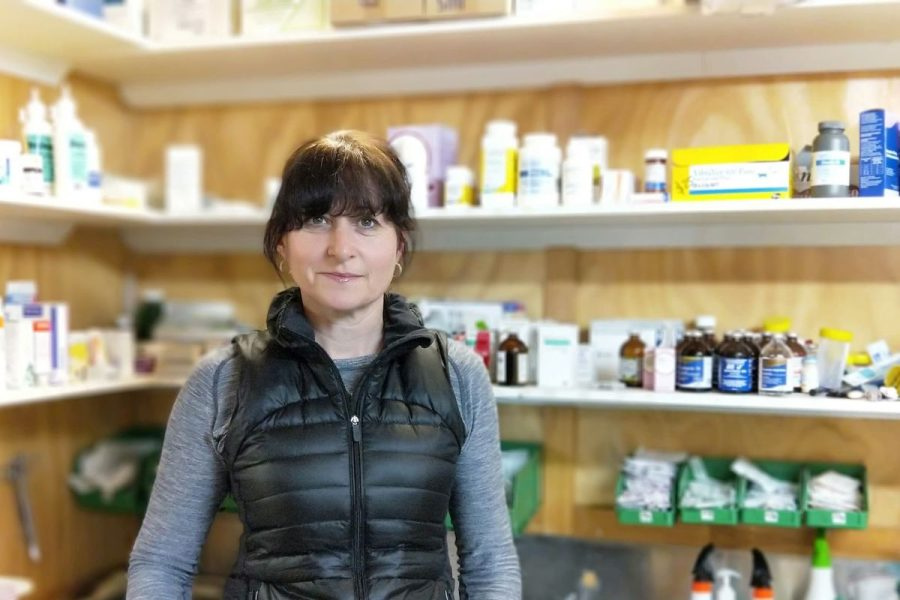“However, it’s critical to realise that in science, things can sometimes take 15 to 20 years to be deemed successful. Which is why we need a long-term strategy, so the momentum can continue – because while the rewards are significant, it does take longer to get there.”
John Robson, General Manager for Bridgewest Ventures New Zealand, is also fiercely advocating for biotech to be seen as a viable resource for New Zealand to tap into. He sees all the potential and how we could be a serious contender worldwide, but says with a lack of organisation and urgency at a high level, any progress is simply stagnating.
“From ease of business, to incredible academics, great animal health and companies who will grow no matter the environment, we have many pockets of greatness – for example, we lead the world in so many aspects of animal management, but we’re too humble about it and no one is pushing those companies forward,” says Robson.
So what’s the answer?
“We need a system redesign at a government level, as the biotech sector won’t organically grow by itself,” he says.
Dr Champion notes that for those at the frontline of biotech innovation, it’s not about getting political. What she wants to see is that all parties agree and align with the next steps of biotech by putting a long term strategy in place – one that can’t have the goalposts moved every time there is a change in leadership. And one of the first things on Dr Champion’s wishlist is making changes in our regulations so the New Zealand environment is easier to work within.
“Some of our regulations are really tough. And it’s not all about focusing on bringing in new regulations, but making our current ones easier to use. From limits on therapeutic applications to rules around medicinal cannabis use and GMO (genetically modified organisms), we face huge barriers in biotech which is such a shame.
“We have developed some incredible innovations in the research and development space – especially in the Ag(ritech) research sector – but because of our legislation we cannot use them in the commercial setting, so many of those trials have had to be done overseas,” says Dr Champion.
“The rest of the world is moving in defining new technologies with updated regulations. But right now, here in New Zealand, it feels like we have two hands tied behind our backs,” she adds.
As with most things, the biotech industry requires significant funding. Dr Champion and Robson know that the infrastructure costs will be enormous, plus the investment in people, which needs a focus on encouraging more people into STEM in our schools, onto studying at our Universities. They say we need to support and incentivise commercialisation of research to enable the creation of successful biotech companies, which in turn will provide these skilled workforce with high paying and high value jobs – so they don’t leave New Zealand.
But money isn’t the only thing on Champion’s mind. It’s also about providing physical spaces and places to foster and grow ecosystems of talent and the biotech companies themselves. And this is something that Stefan Korn, Chief Executive of Callaghan Innovation, New Zealand’s innovation agency, sees as one of the biggest challenges we’re facing.
“We definitely have a shortage of suitable lab spaces – there is a notorious scarcity of readily available, open access PC2 labs (physical containment level 2) and GMP (good manufacturing practice) spaces. We also need to work harder on enabling shared usage of equipment and facilities – where possible – and to enable our amazing workforce talent to move more easily between institutions, both the public and private sector,” says Korn.
Korn is hoping that there is an opportunity for biotech to feature among the National Research Priorities (NRP) which are currently being worked on at the moment under the Governments ‘Te Ara Paerangi’ review. The NRPs are selected by an independent panel of experts and it remains to be seen whether biotech is selected but personally, he thinks something in this space would be an excellent choice.
“It’s an industry that is highly attractive and suitable to New Zealand as it is generally high margin, has a low environmental impact and high spillover benefits into other, related industries (e.g. animal health).
“Many biotech products sell by the milligram or millilitre at hundreds or thousands of times the price of milk, which means they can be produced and shipped sustainably from here. Biotech has the potential to be another great flywheel for the New Zealand economy to complement existing industries, and to generate additional export dollars for our companies,” Korn says.
However, another problem New Zealand faces is our distance to market. And while that is something that can’t physically be remedied, Champion says there are plenty of ways we can ensure we remain connected.
“It’s important that we have a Government supporting biotech delegations to international conferences overseas. New Zealand needs to be seen as a credible potential partner to these international organisations who are working on these innovations, so we aren’t just buying them, we’re making them.”
What’s critical is ensuring that key decision-makers understand the complexities of biotech, and how it encompasses a wide range of sectors. And Robson is particularly encouraged by the shift to personalised medicine, where he has seen some incredible results from CAR-T Cell immunotherapy – a revolutionary new approach to fighting cancer.
“The rest of the world is shifting towards these new and novel ways to treat people who have diseases that were previously incurable. And New Zealand has some amazing physicians who could support a new cancer immunotherapy centre, allowing us to be represented on the world stage,” says Robson.
Ultimately, Dr Champion says open and transparent support is needed from the central government, for an industry that is critical to the future of humanity. As has been proven through the Covid-19 pandemic and the increasing concerns around variants, she says it’s not just about investment and returns, but safeguarding a country’s population.
“New Zealand hasn’t focused on biotech since 2012, when the initial task force was finalised. But eleven years later there are so many challenges that the world is facing, and we believe biotech is so key to addressing those issues head on. With most other countries already using biotechnology in many ways, we’re only just starting to talk about it, so there is a lot of catching up to do,” says Dr Champion.
“Over in Australia, they have been taking many big strides forward, with federal and state funding, ensuring it is a highly paid and dynamic industry. But we’re highly fragmented here, because biotech includes a wide number of sub sectors that are growing organically without leadership.
“Aotearoa needs a National Biotech Strategy like Australia to ensure we create a thriving biotech sector for New Zealanders,” explains Dr Champion.
“BioTechNZ has made significant gains for the sector, however, there’s only so much we can do without the government seeing the value in biotech, and supporting it. And the time is now.”
Story by Erin Harrison.



